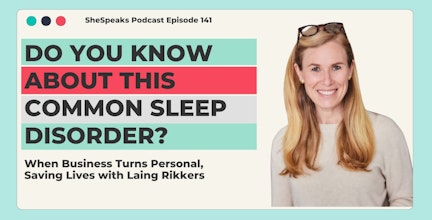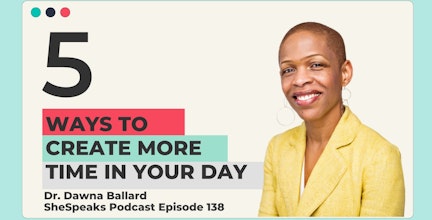Communicating with a Speechless Child

My 6 year old daughter, Zoe, can’t speak. Sure, she has a few words and can occasionally say short sentences, but she is unable to talk like most kids her age. Over the years, we’ve learned ZoeSpeak, and she has learned more skills to help her communicate. I thought I’d share some tips with you on how to treat and communicate with children who have difficulty speaking.
Defining a Speech Disability
Speech disabilities can be caused by a number of issues, such as hearing loss or difficulty processing sounds into speech. In this article, though, I’m referring to disorders where children cannot easily or clearly verbalize their needs, desires, and opinions at an age-appropriate level or are completely speechless. The causes and solutions to these are so diverse, that to go over even a handful would take an entire paper! Rather than give you an exhaustive list of disorders, I’m going to focus on helpful tips for communication.
- Speechless does not mean stupid. I run into this when people meet Zoe all the time. “She understands you?” “She obeys commands?” “She can problem solve?” Yes, yes, and yes! Like many people with autism, my daughter’s brain has a hard time translating words into visual images. While she does have some developmental delays, just because a person’s speech is missing or not on track, that does not mean their cognitive abilities are impaired or nonexistent. In fact, many people with high functioning autism are smart and/or gifted, independent of their ability to speak.
- Communication comes in many forms. One thing I’ve learned from Zoe is that if we give her options, she can communicate. It’s like mobility. If you give someone who cannot walk a wheelchair, they may be able to get around. When we change our mindset from “speaking” to “communicating” with a person, we can more clearly see the human that lives inside all people. In fact, in real life, speech is only one form of communication…and how often does speech reveal exactly what we mean? Sign language, picture systems, electronic devices and so on are all good ways that people with speech disabilities can communicate. It’s up to us to listen.
- Use clear, appropriate speech. How clear is your speech? How accurate are your words, sounds, grammar? Are you literal, or do you speak with metaphors and non-sequitors? Many children with autism have a hard time processing non-literal speech. When I use terms like, “I want you to clean up,” my daughter may ignore me because she’s not clear on what I want cleaned, how, when, etc. My words are meaningless to her literal mind and her “disobedience” is simply misunderstanding.
- Recognize progress. Kids love positive feedback, and when Zoe uses a string of sentences appropriately, even if it’s a catch phrase from a film she loves, we praise her. She will often use it again in similar situations. Progress can come through discipline as well. Yesterday, she wanted to go downstairs before getting dressed. I insisted that she must be dressed first. She pushed herself to communicate – “Downstairs!” – to make sure I understood because I wasn’t letting her walk down. I let her know I understood her, and she had a tantrum, but we knew we were communicating clearly. This is progress, too.
- Don’t give up. This week, a new friend of my told me that her son did not speak a single word when he was my daughter’s age. Now, at age 9, you’d never know he had a problem. My husband and I are vested in Zoe’s therapy, using reinforcement, praise, devices – anything that will increase her speech skills. Although she is behind her peers, she’s moved forward, especially when we challenge her more. We frequently encourage her to say words she knows for items she wants rather than just pointing before we give them to her. Progress can come in small steps, so when you are communicating with a child who does not speak well or at all, don’t give up. Keep talking to that child to build a relationship and sooner or later, you will understand him or her.
Speaking to and understanding non-verbal children is a challenge, but it will pay off in a big way when that child jumps for joy because you understood her. Pretty soon, you’ll have made a new friend, and helped another person enjoy her life just a little more, and that’s worth all the effort in the world.
Make a Comment
 by
momsvoicetoday | cleveland, OK
by
momsvoicetoday | cleveland, OKRaising kids with special needs, maybe a little more time consuming, but I will be the first to tell you the are so special. They find ways into your heart and they don't ever let go. From a mom who has a child with a critical illness. I hope many people take the time to read what you wrote and take it to heart just to slow down and understand these children no matter what problem they may have.
 by
Preschoolteachershelly | BURLINGTON, IA
by
Preschoolteachershelly | BURLINGTON, IAGreat article! I'm a preschool teacher. I have worked with several special needs children over the years. I agree that being clear in speech is a must! Also, having visuals is a very valuable resource.
 by
brensmom | LOOKOUT, WV
by
brensmom | LOOKOUT, WVWhat a great article from the heart! I have worked with children with disabilities for almost 10 years. I think it is great to mention that communication comes in many different forms. Just because a child does not verbalize does not mean they cannot commuicate. Contact a local speech therapist or developmental specialist for ideas!
 by
ginabad | MACUNGIE, PA
by
ginabad | MACUNGIE, PAThank you! I've learned a lot from people with autism and sensory issues, and from specialists and from my own kid. I know I am NOT clear sometimes, but this drives me to improve.
 by
silver9mm | springfield, OR
by
silver9mm | springfield, ORGreat article! You've really opened your mind to other ways of thinking and being creative when it comes to communicating. 3. was my favourite point, as it's what I struggle with the most. People think I'm joking when I don't get their jokes, or make general statements that take me forever to figure out how it applies, etc. You have great insight!










_01252024061712.jpg?max-w=432&max-h=220&fit=crop&auto=format)

_10242023164832.jpg?max-w=432&max-h=220&fit=crop&auto=format)


_08172023152001.jpg?max-w=432&max-h=220&fit=crop&auto=format)


 (6)_07082023175312.jpg?max-w=432&max-h=220&fit=crop&auto=format)
 (1)_05192023144508.jpg?max-w=432&max-h=220&fit=crop&auto=format)

 (37)_05032023114523.jpg?max-w=432&max-h=220&fit=crop&auto=format)
 (3)_04112023125932.jpg?max-w=432&max-h=220&fit=crop&auto=format)
 (36)_04272023152113.jpg?max-w=432&max-h=220&fit=crop&auto=format)